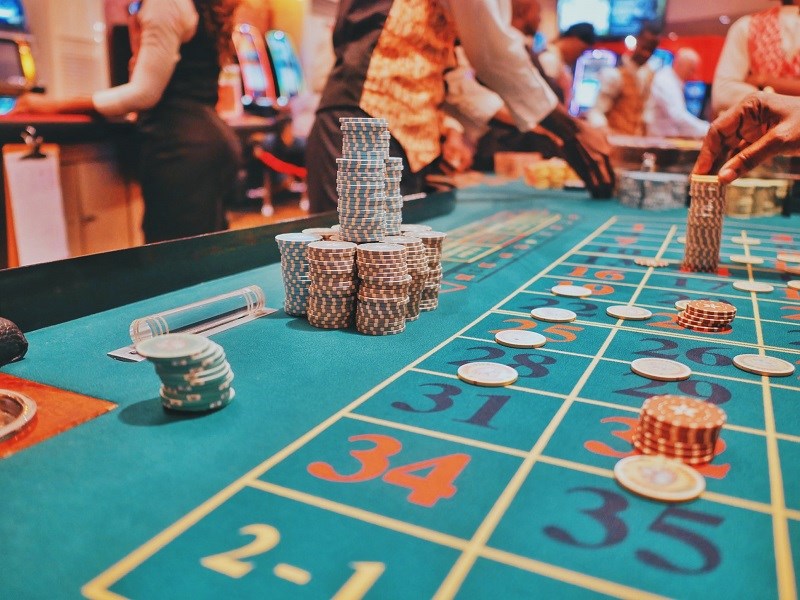
One of the hardest hit by the coronavirus jitters is the lucrative casino and gaming industry of Macau, the only region in China with legalized gambling.
The epidemic forced the local government to suspend all gaming operations for over two weeks. The fear of a sharp drop in Macau gaming revenue, as a result, triggered a sell-off in China-sensitive casino and gaming stocks, wiping out any gains they had made this year. Leading operators with significant revenue exposure to Macau have fallen between 3% and 14% for the year to date, as of Feb 20. For the same period, the MVIS Global Gaming Index has shed nearly 2% compared to 24% gains for the S&P 500.
On a brighter note, though, analysts say the pain will be short term and that the revenue losses will be mitigated by the pent-up demand once the epidemic is under control.
The recent pullback has created attractive entry points for the following blue-chip casino stocks that have significant exposure to Macau. These stocks are well-positioned to benefit from the strong gaming demand in Macau -- Chinese propensity to gamble is twice that seen in the U.S. -- buoyed by ongoing infrastructure and middle-income development in China, according to Morningstar.
|
Wynn Resorts Ltd |
||
|
Ticker: |
WYNN |
|
|
Current yield: |
3.13% |
|
|
Forward P/E: |
20.45 |
|
|
Price: |
US$121.14 |
|
|
Fair value: |
US$164 |
|
|
Value: |
22% discount |
|
|
Moat: |
Narrow |
|
|
Moat trend: |
Stable |
|
|
Star rating: |
**** |
|
|
Data as of Feb 24, 2020 |
||
Casinos and resorts giant, Wynn Resorts (WYNN) owns four megaresorts: Wynn Macau and Encore in Macau and Wynn Las Vegas and Encore in Las Vegas. The company is in the process of adding more properties in Macau from which it gets 77% of its EBITDA.
Macau is poised for a solid visitation and gaming growth boosted by key infrastructure and transportation projects over the next several years. “We view Wynn Resorts as a high-end iconic brand that is well-positioned to participate in the attractive long-term growth opportunity of Macau,” says a Morningstar equity report, noting that the operator has expanded its room share in the region to 9% from 6% since 2016.
While Wynn’s 2019 sales dropped 1.6%, the company remains well-positioned for long-term growth in Macau (76% of 2019 EBITDA) once the coronavirus is contained. “While it is extremely hard to handicap the final impact from the outbreak, we plan and model 80% average declines in Wynn’s Macau revenue for a two-month period, mitigated by pent-up demand once the illness is resolved,” says Morningstar equity analyst Dan Wasiolek, who pegs the stock’s fair value at US$164 and projects high-single-digit long-term sales for the region, driven by a constructive view of the region’s highly regulated gaming market.
Wynn gets 23% of its EBITDA from Las Vegas, where it has various projects currently under development.
|
MGM Resorts International |
||
|
Ticker |
MGM |
|
|
Current yield: |
1.91% |
|
|
Forward P/E: |
23.58 |
|
|
Price |
US$29.68 |
|
|
Fair value: |
US$40 |
|
|
Value |
22% discount |
|
|
Moat |
None |
|
|
Moat Trend |
Stable |
|
|
Star rating |
**** |
|
|
Data as of Feb 24, 2020 |
||
The largest resort operator on the Las Vegas Strip, MGM Resorts (MGM) owns MGM Grand, Mandalay Bay, Mirage, Luxor, New York-New York, and a 50% ownership stake in CityCenter, comprising 35,000 guest rooms and suites, representing about one-fourth of all units in the market.
The company also operates the 56%-owned MGM Macau casinos and recently expanded its presence to capitalize on the booming tourism demand which underpins the gambling revenue growth in Macau.
“MGM Resorts is positioned to maintain its leading presence in the lower-growth, lower-barrier Las Vegas region (47% of estimated 2019 EBITDA) while participating in the attractive long-term growth opportunity of Macau (20% of EBITDA),” says a Morningstar equity report.
The operator has expanded its room share in Macau to 8% from 3% with the addition of the new Cotai property in 2018. “While the coronavirus will drive our near-term MGM’s Macau (22% of EBITDA) estimates lower, we plan to leave our long-term forecast (high-single-digit sales) for the region intact,” says Wasiolek, noting the region is primed for robust tourism and gaming market growth.
MGM is also expected to open a resort in Japan in 2026. “We expect MGM to be awarded a gaming license in a Japanese urban market with a resort opening in the middle of the next decade,” says Wasiolek, who puts the stock’s fair value at US$40.
|
Melco Resorts and Entertainment Ltd ADR |
||
|
Ticker: |
MLCO |
|
|
Current yield: |
3.24% |
|
|
Forward P/E: |
49.02 |
|
|
Price: |
US$19.68 |
|
|
Fair value: |
US$31 |
|
|
Value: |
32% discount |
|
|
Moat: |
Narrow |
|
|
Moat trend: |
Stable |
|
|
Star rating: |
**** |
|
|
Data as of Feb 24, 2020 |
||
The Macau-focused Melco Resorts (MLCO) is one of only six firms allowed to operate casinos in the region. It operates gaming casinos, restaurants and resorts for patrons ranging from VIP to mass-market. The company also has majority stakes in Studio City in Macau and City of Dreams Manila, in the Philippines.
The government-enforced closure of Macau casinos would not have a long-term impact on Melco revenue. A Morningstar equity report projects “an 80% year-over-year decline in gaming and hotel revenue for three months, followed by 15% higher-than-normalized gaming and hotel revenue in the following eight months.”
The current pullback won’t last forever, and the stock prices will bounce back once the epidemic dissipates, says Morningstar equity analyst Chelsey Tam, who estimates the stock’s fair value to be US$31. “We think Macau gaming would see higher-than-normalized revenue when the epidemic subsides, due to pent-up demand,” she says, adding “this is a good opportunity for long-term investors to go bargain-hunting in the Macau gaming coverage.”
The increase in hotel rooms over the next few years will accommodate more tourists and increased length of stay driving the top line for Melco, says Tam, who forecasts annual revenue growth of about 6% for the next 10 years. Additionally, neighbouring Hengqin Island, three times the size of Macau, is under rapid development to complement Macau's growth.
|
Las Vegas Sands Corp |
||
|
Ticker: |
LVS |
|
|
Current yield: |
4.82% |
|
|
Forward P/E: |
20.16 |
|
|
Price: |
US$62.59 |
|
|
Fair value: |
US$76 |
|
|
Value: |
13% discount |
|
|
Moat: |
Narrow |
|
|
Moat trend: |
Stable |
|
|
Star rating: |
*** |
|
|
Data as of Feb 24, 2020 |
||
The world's largest operator of fully integrated resorts, featuring casino, hotel, entertainment, and food, Las Vegas Sands (LVS) owns properties in Las Vegas, Macau, and Singapore. The company generates nearly 90% of its EBITDA from Asia, and its casino operations generate around 70% of sales.
The operator’s Las Vegas properties accounted for 9% of 2019 earnings, while Macau (59%) and Singapore (31%) contributed to the bulk of it. “We view Las Vegas Sands as well-positioned for long-term growth in the gaming industry because of the attractive long-term growth opportunity of Macau and Sands' dominant mass and nongaming position on the attractive Cotai Strip,” says a Morningstar equity report.
Sands holds one of only six gaming licenses (a competitive advantage) in Macau and stands to benefit from upcoming developments that will further improve Macau's profile. “Las Vegas Sands has a dominant presence in the supply-controlled Macau market,” says Wasiolek, pointing out the operator has around 45% share of the Macau hotel room supply, as well as around 50% and 80% of the region's nongaming revenue and convention centre capacity, respectively.
Sands' position in Singapore is also attractive, where it will operate in a duopoly through 2030, further reinforcing the long-term growth outlook, says Wasiolek, who determines the stock’s fair value to be US$76, and forecasts the company will receive one of only two Japan urban gaming licenses in 2021.






















